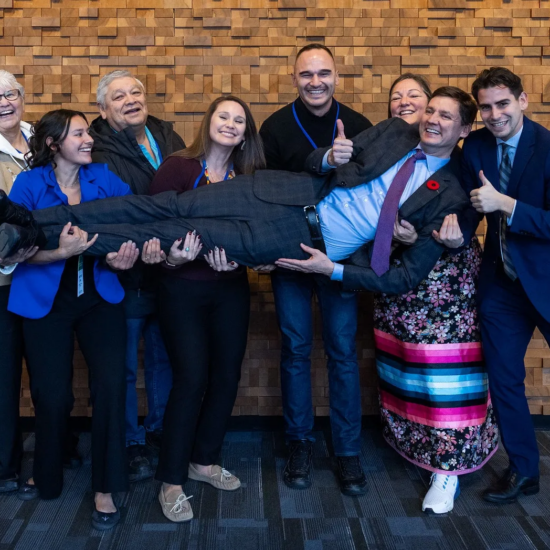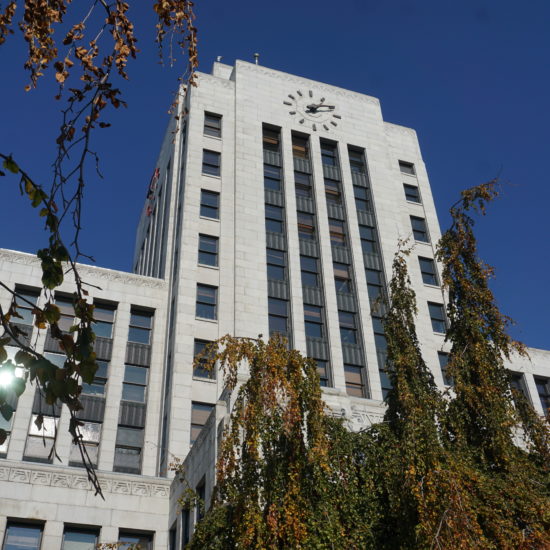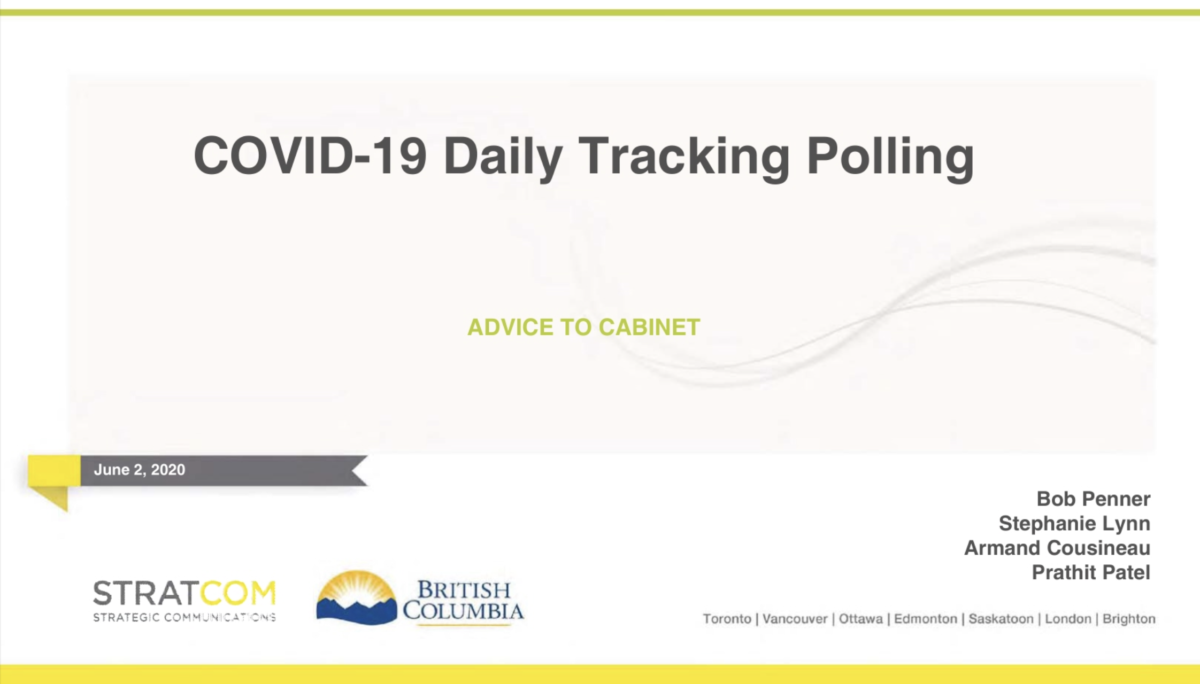
Bob Mackin
The turning point in John Horgan’s five-and-a-half years as British Columbia premier came Sept. 21, 2020, when he announced a snap election between the first and second waves of the COVID-19 pandemic.
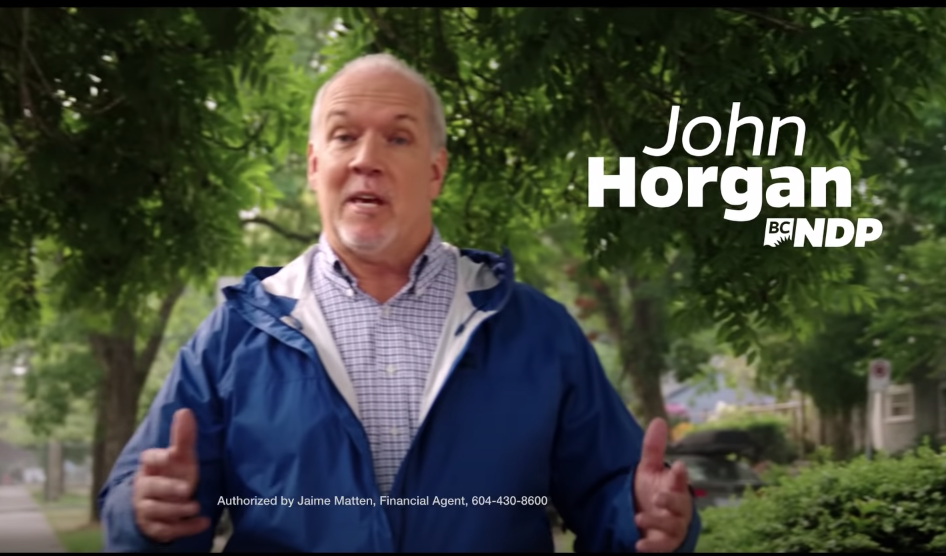
John Horgan (NDP)
On day one of the campaign, Horgan famously justified breaking the fixed election date law and prematurely ending the NDP’s confidence and supply deal with the Green Party by claiming the “best way forward is to put the politics behind us.”
Why was Horgan so confident? It turns out he had the roadmap for victory beside him all along.
Specifically, the knowledge of what voters were thinking about the issues that concerned them, thanks to daily polling reports for cabinet that were originally intended to shape the NDP government’s response to the pandemic.
Nearly 6,000 pages obtained via freedom of information include two dozen reports by NDP polling firm Strategic Communications Inc., aka Stratcom, spanning April 23, 2020 to May 29, 2020.
The governing party, through Government Communications and Public Engagement, gave Stratcom the no-bid, emergency contract less than a month after the pandemic began, worth almost $95,000 for “daily tracking polling regarding the COVID-19 pandemic in B.C.” The insights gleaned helped embolden the NDP as the Legislature reconvened and campaign workers began to train for an election like no other.
Vancouver-headquartered Stratcom has a long history of working with the NDP and its once-powerful civic affiliate, Vision Vancouver. Clients include a who’s who of Canadian labour and environmental circles, from David Suzuki Foundation and Greenpeace to the Canadian Labour Congress, Unifor, B.C. General Employees’ Union and the United Steelworkers. Stratcom boasts offices in Toronto, Ottawa and two in the U.K., where it works with the Labour Party.
When David Eby was sworn-in Nov. 18 as B.C.’s new premier, he famously said he wasn’t as tall as he looks, “because I’m standing on the shoulders of John Horgan.”
He could’ve said he was also standing on the shoulders of Stratcom. Not only is the company instrumental in the NDP’s power, but Eby’s right-hand man is Stratcom’s former president Matt Smith.
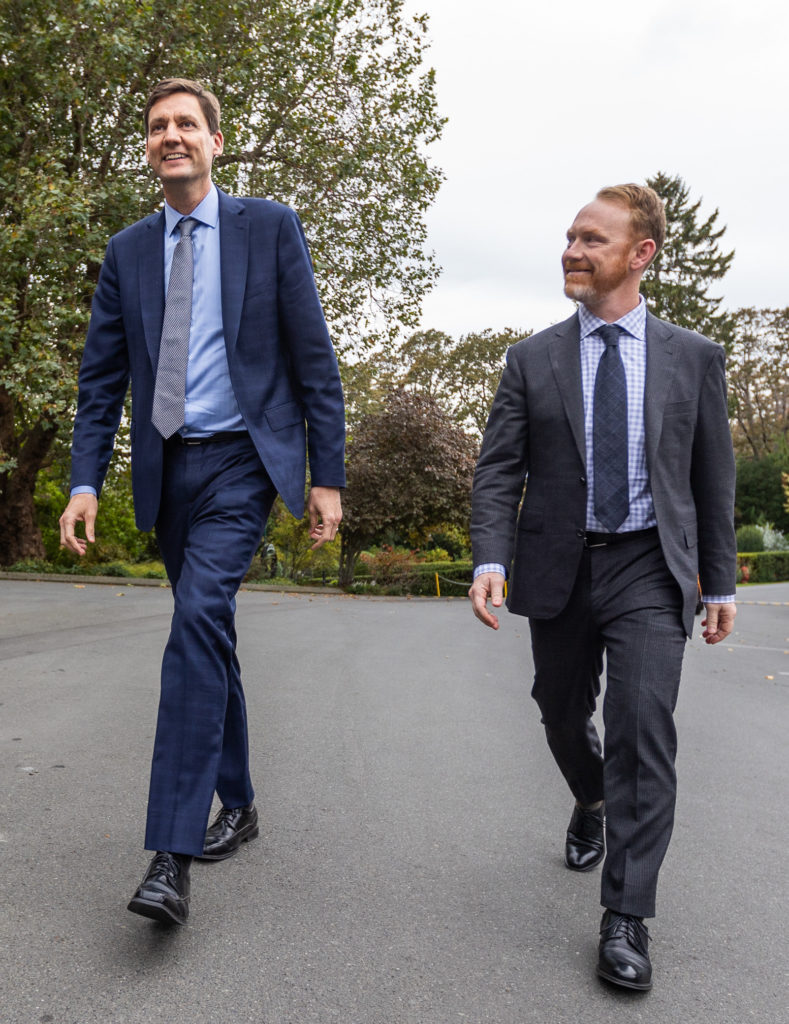
Premier David Eby (left) and chief of staff Matt Smith (BC Gov)
The COVID-19 Daily Tracking Polling project not only gauged public opinion on how the government was handling the pandemic, and how citizens were impacted, but it also measured a long list of other issues that preceded the public health emergency.
In an affidavit to the Office of the Information and Privacy Commissioner, in defense of withholding some information from the Stratcom disclosure, former Horgan press secretary Jen Holmwood explained the files include survey questions, options for response, topline reports, highlighting the most-important details and insights, and cross-tabulation reports, showing the relationship between survey questions.
“GCPE works with third-party public opinion research agencies to engage British Columbians and gain insights through qualitative and quantitative methods to aid in the development of marketing and advertising, and gather feedback a variety of topical issues, as well as government policies and programs British Columbians rely on,” said Holmwood, now executive lead for corporate priorities in GCPE. “Strategic Communications Inc. is one of these research agencies.”
The last report, dated June 2, 2020, summarized Stratcom’s May 25-29, 2020 online poll, which sampled 924 B.C. residents, aged 18 and up. It was statistically weighted to match the gender, age and region of respondents — even the proportion of Chinese mother tongue in B.C., as per the 2016 Census.
The names of four Stratcom executives — CEO Bob Penner, vice-president Stephanie Lynn, senior manager of research Armand Cousineau and data analyst Prathit Patel — were on the cover. Charts and graphs analyzed responses to 21 questions, broken down by the province’s four main regions and further broken down by eight sub-regions.
Stratcom asked respondents to choose the top two issues facing the province from a list of 24. It was no surprise what topped the list through the spring. By the end of May 2020, however, the proportion of respondents picking COVID-19 in the top two had fallen to 42%, from a high of 66% in March.
“Other top issues are cost of living/affordability (28%), economy/jobs (20%), and
housing/price of real estate (18%),” the report said. “These other top issues have remained consistent since the tracking polling started.”
Stratcom also separated respondents by those who considered the NDP government on the right track versus those who thought the government was on the wrong track.
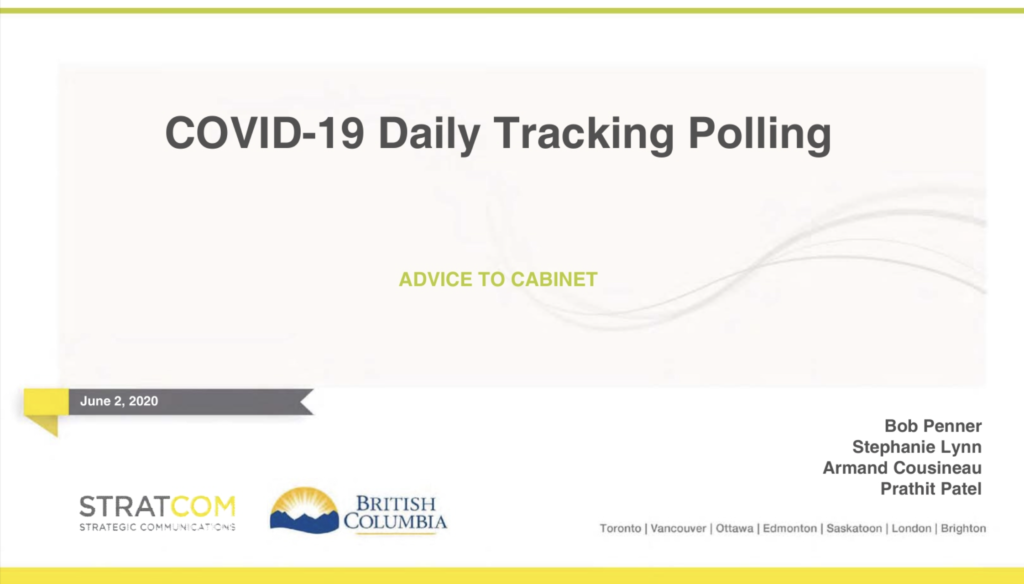
Stratcom had a $95,000 contract to track public opinion on the pandemic response (BC Gov)
“Just under three-quarters (72%) think the B.C. government is on the right track. As can be seen in the tracking charts over time, this is a rating considerably higher than the norm (pre-2020 data points).”
Stratcom also found the B.C. government ranked highest in satisfaction among three governments (85% versus 77% federal and 68% local).
A very good sign for the NDP, which was scheduled to go to voters in October 2021, but shifted gears in the summer of 2020 when virus infections waned and public health restrictions relaxed.
So-called right track voters supported the government’s work on COVID-19, cost of living, economy/jobs and climate change/global warming. Wrong trackers were unhappy with NDP handling of the housing, healthcare, getting pipelines built, homelessness, car insurance and addiction files.
People over 55 were more likely to think the government was on the right track, most-likely to think the government was doing an excellent job handling the pandemic (+12%) and most-likely to think that COVID-19 is a real threat (+5%).
Another good sign for the NDP, because the over 55 set is also the traditional age bracket that tends to vote more than the rest.
The choice to feature Health Minister Adrian Dix and Provincial Health Officer Dr. Bonnie Henry as spokespeople for the battle against the virus, rather than Horgan, was supported by the vast majority of respondents who agreed the government was providing very clear (54%) or somewhat clear (32%) information about the pandemic. Those aged 65 and up were especially pleased: 75% scored the government’s communications as very clear.
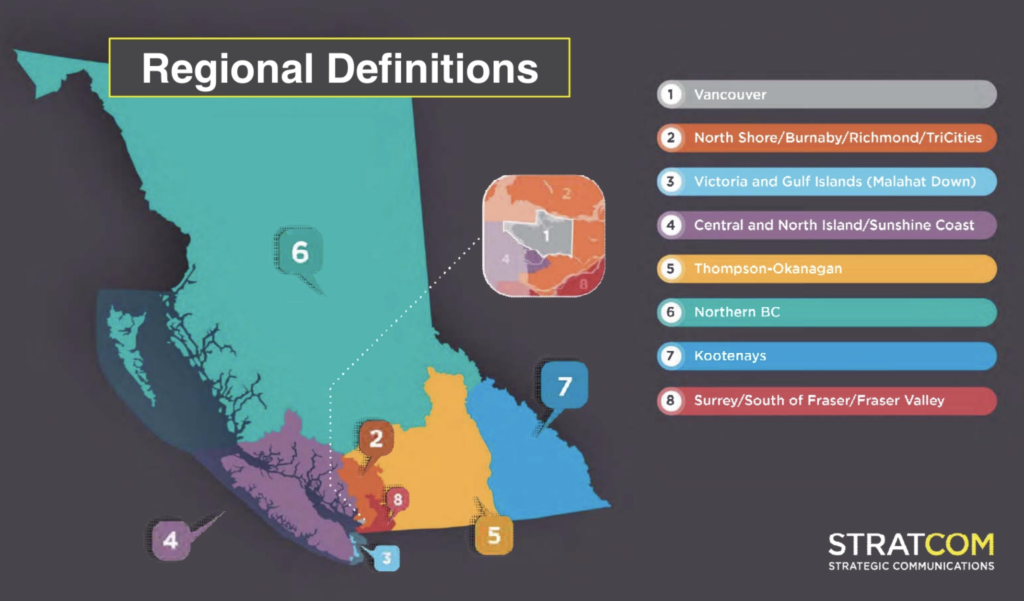
The regional breakdown for Stratcom’s COVID-19 daily tracking project (BC Gov)
Some 77% considered COVID-19 a real threat, versus only 14% who believed it was blown out of proportion and 9% who answered not sure. Residents outside the Lower Mainland and Vancouver Island were more likely to not see COVID-19 as a real threat.
“Those who think the B.C. government is on the wrong track are more likely to believe COVID-19 is blown out of proportion (25%).”
A plurality (38%) believed it would be more than a year before day-to-day life returned to normal. The biggest beef was not being able to travel (50%) followed by concerns about a loved one getting sick (48%) and personally getting sick (41%).
The survey focused heavily on economic questions. It undoubtedly informed not only the May 6, 2020-announced B.C. Restart Plan, but the StrongerBC economic blueprint timed for rollout just four days before Horgan’s snap election call.
Over half (53%) rated the economy fair, 32% good and 2% excellent. Vancouver Islanders were more likely to rate the economy good (37%) and gave the government an excellent rating for handling of the pandemic (44%). The numbers were a turnaround from early days when businesses big and small ground to a halt.
“The proportion rating the economy as poor increased more than two-fold in the first weeks of the pandemic but this has been gradually dropping since mid-May and is now only a few points above November 2019 figures.”
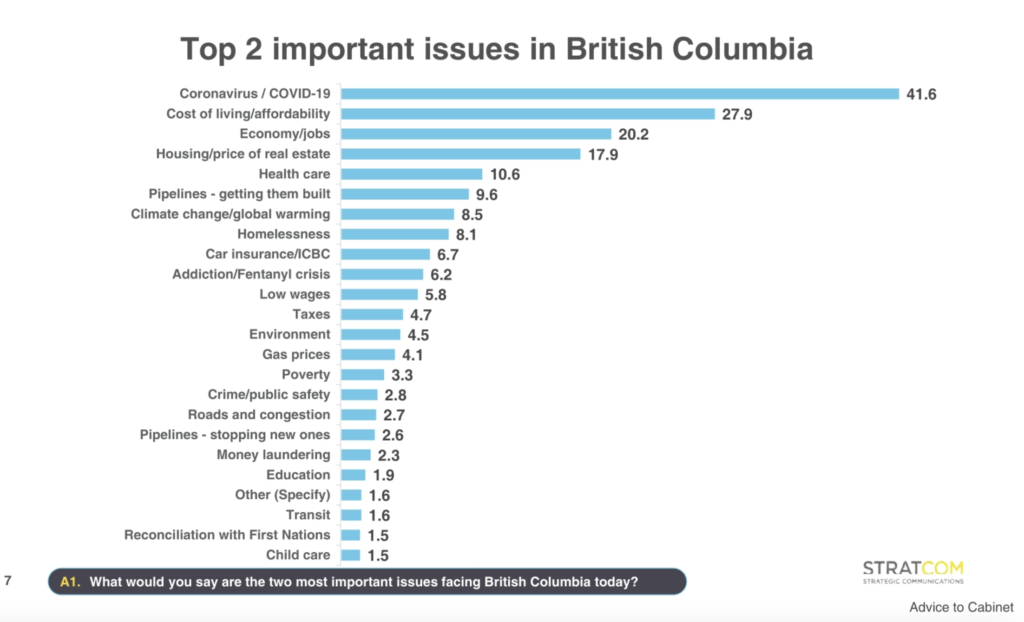
Stratcom asked respondents about key issues (BC Gov)
Two-thirds rated the government’s job of handling the pandemic as either excellent (32%) or good (42%) and a majority (72%) was optimistic about B.C.’s future — 18% better than November 2019.
Only 15% of respondents said they lost their job due to the pandemic, though almost a quarter (22%) said a family member lost their job and more than a third (36%) knew someone outside their family who lost their job. Those 18-34 were most likely to have lost a job due to pandemic (+10%).
A majority (65%) believed the restart plan measures properly balanced health and economy, but 24% worried the distancing measures were being relaxed too quickly.
The most divisive questions were about reopening schools and protecting transit schedules.
On the education question, “the opinion of those with kids under 18 in their household (25% oppose, 23% support) does not vary from the opinion of those without kids (24% oppose, 23% support).”
For buses and trains, 42% opposed service cuts and 42% thought cutbacks and layoffs made sense as white collar work-from-home prevailed.
More than two-thirds (67%) of respondents favoured bailing out businesses to help workers keep their jobs and companies keep their doors open.
Looking forward to the end of the pandemic, respondents wanted the government to favour healthcare, manufacturing and jobs.
“The priority with the most #1 ranks is: Making sure B.C.’s health care system is ready for another pandemic so that B.C. is never again hit so hard,” it said. “The priority with the most ranks overall, and second most #1 ranks, is: Improving health care and ensuring our doctors and nurses always have the resources and equipment they need.”
Less than three weeks before election day, on Oct. 6, 2020, Horgan released the NDP platform, built around four main themes: Fighting a pandemic. Better health care. Affordability and security. Good jobs and livelihoods in a clean energy future.
All of which were explored in the Stratcom polls.
Eight months after the election — and a year after Stratcom’s daily tracking polling — the BC Liberals grilled the NDP during budget estimates hearings at the Legislature.
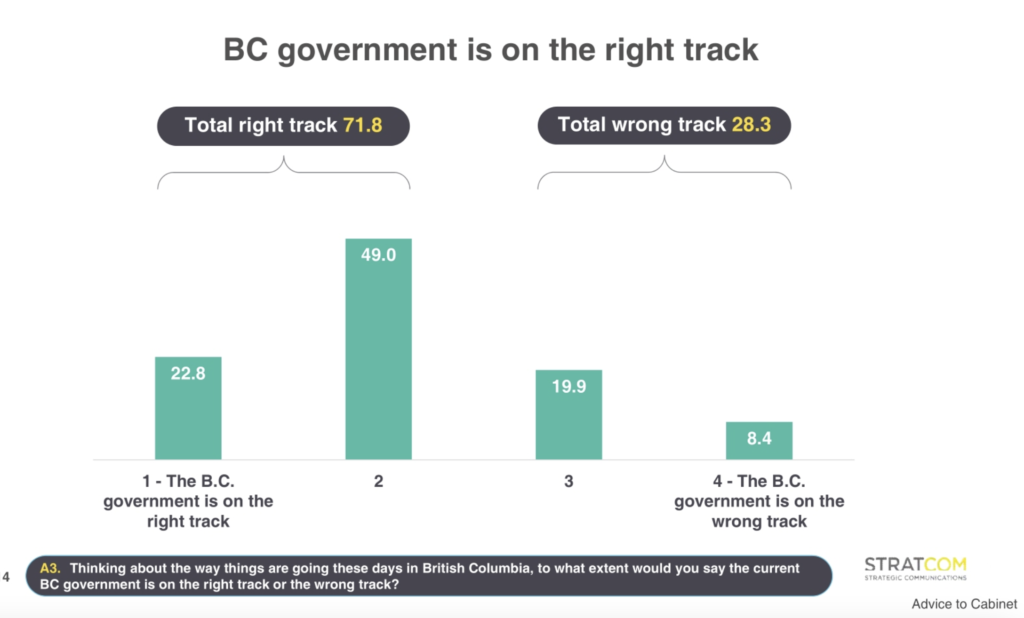
The NDP wanted to know whether it was on the right track (BC Gov)
Peace River MLA Mike Bernier elicited a vague answer from Dix on June 15, 2021, suggesting he would be “happy to look into polling that may have taken place.”
Minister of Finance Selina Robinson, whose portfolio includes GCPE, was more candid with Bernier. She said that polling was helpful to identify the challenges and needs of citizens, communities and businesses “so that we could get through this pandemic.”
The next day, it was interim opposition leader Shirley Bond’s turn. But Horgan predictably and coyly denied that he used Stratcom’s polling for political gain.
“StrongerBC was the government’s plan,” he said. “It was not the NDP platform. How it was characterized is not something I had any control over. The polling that is done regularly by government informs the creation of policies and programs.”
Ultimately, it helped Horgan win an election and has given successor Eby the chance to keep power in NDP hands.
Support theBreaker.news for as low as $2 a month on Patreon. Find out how. Click here.






